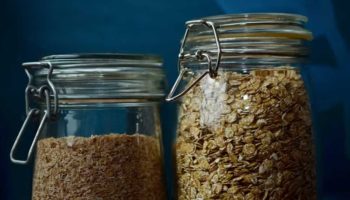Flowers give your garden a unique charm, colorful freshness and a truly lush touch. However, to optimize their growth and maintain their longevity, they need a series of adapted care and adequate nutrients. There is no need to consistently resort to chemical ingredients that unfortunately pollute the environment. Why not opt for a healthier and more ecological alternative? Here is a selection of natural fertilizers that will help your flowers thrive safely!
What are the best fertilizers for your garden?
Industrial and chemical fertilizers are not necessarily the best solution for maintaining beautiful, healthy and long-lasting plants. Quite the contrary. Despite their proven effectiveness in promoting growth, these artificial products are also known for their harmful and aggressive effects. However, with natural ingredients you can achieve equally satisfactory results or even better. To grow up to twice as many flowers outdoors, there is nothing better than a natural organic fertilizer that respects the treasures of Mother Nature. As a bonus, you probably already have everything you need at home!
-
Rice, an inexhaustible source of benefits for plants
Starting with white rice. Many people don’t know it, but it’s an excellent natural fertilizer for your plants. In fact, this food, consumed worldwide, is rich in starch, carbohydrates and vitamin B, which makes it an excellent source of nutrients for plants. But that’s not all: it also contains minerals such as nitrogen, phosphorus, magnesium and potassium, substances that are ideal for promoting the growth and flowering of plants. How to prepare this natural fertilizer based on raw white rice? Ideally, try to obtain untreated beans, that is, without the addition of additives or preservatives. Here are the steps you need to follow:
- Put 3.5 oz of rice in a container and add 1 quart of water.
- Mix thoroughly and let it soak for about 24 hours. This allows the rice to release all of its nutrients into the water, which are then used by the plants.
- After this time, the rice will have a tender consistency. Mix again and filter through a sieve. Even if we are interested in the liquid, do not waste anything: you can use the grains as a natural organic fertilizer and apply it to the soil to create a nutrient-rich substrate that will make plants grow faster and healthier. As a bonus, the addition of rice grains enhances the beneficial effects of liquid fertilizer.
The rice water is now ready for use. However, before use, it is recommended to dilute it with water (1 cup of fertilizer to 10 quarts of water). Once the process is complete, you can pour it on the soil around the plants or on the leaves, depending on the needs of each plant.
Good to know: It is recommended to use this natural fertilizer based on white rice every two weeks to obtain vigorous plants and abundant flowering.
-
Coffee grounds to beautify your vegetable garden
Previously do you threw away the coffee grounds after use?. Too bad, because this often-underestimated product can work wonders in your garden. Rich in nitrogen, sulfur and phosphorus, it acts as an ideal fertilizer to feed your plants. Keep in mind that roasting completely decomposes the plant protein, but most of the plant nutrients are retained in the decomposition products. How to use it as a fertilizer? It’s hardly worth going out into the garden with a single used filter and sprinkling it around your plants. It is best to put it in a bucket and keep it in a dry but ventilated place. To help it dry faster, hang a fine mesh screen to prevent mold. When dry, sprinkle a few handfuls around the roots of each plant.
When is the best time to fertilize the garden?
Plants receive the most benefits from fertilizers during the growing season. Therefore, the best time to fertilize is early spring, when they awaken from dormancy. But remember that each plant has its own individual fertilizer needs. Acid-loving plants such as azaleas, blueberries, camellias, hydrangeas and rhododendrons especially prefer a more acidic soil pH to absorb nutrients. Flowering or fruiting plants need more phosphorus to stimulate bud, fruit and flower growth.
Where can you find natural nitrogen?
The richest organic nitrogen sources are: Manure, ground animal parts, and meal (soybean meal or cottonseed meal). Nitrogen concentration in manure varies by animal species, but also by age of manure and type of storage. Since animal carcasses and seed meal are subjected to special treatment, they generally have a very high nitrogen concentration.



